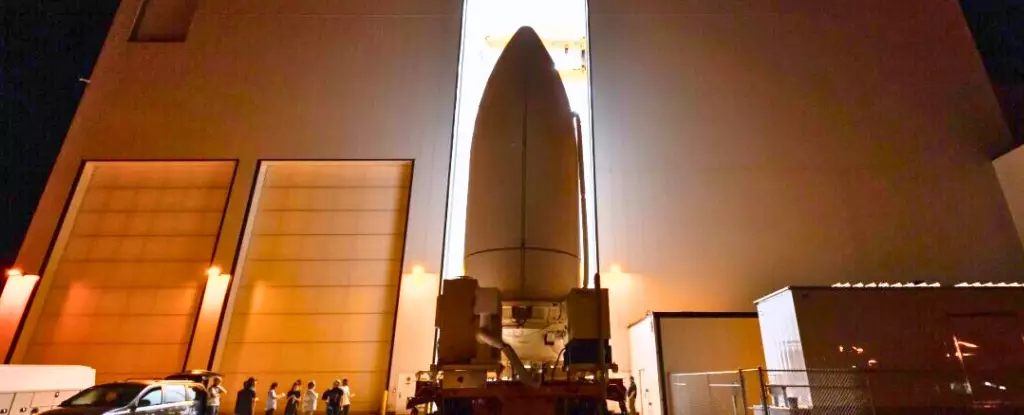Amazon is gearing up for a groundbreaking moment as it prepares to launch its inaugural fleet of Project Kuiper satellites, an ambitious venture aimed at transforming global internet accessibility. Scheduled for lift-off on April 9, the mission, dubbed Kuiper Atlas 1, will see 27 satellites propelled into low Earth orbit via an Atlas V rocket from Cape Canaveral, Florida. This launch serves not only as a critical step for Amazon but also positions it as a formidable contender in the rapidly evolving satellite internet market, primarily dominated by Elon Musk’s Starlink.
Engineering for Impact
The upcoming deployment is not merely a technological feat; it represents a significant leap from the company’s earlier prototype satellites successfully tested in October 2023. These new satellites are designed to be more advanced, addressing key challenges of satellite internet, namely speed and latency. The mission highlights Amazon’s commitment to harnessing cutting-edge technology to bring high-speed internet access to millions, particularly those in remote regions and disaster-torn locales. The prospect of virtually universal internet coverage is an alluring promise that could redefine connectivity and bridge digital divides globally.
A Competitive Arena
However, entering the satellite internet race comes with its own set of challenges. SpaceX has a substantial head start with its Starlink project, having already launched more than 6,750 operational satellites since 2019. Additionally, competition extends beyond Musk’s ambitious ambitions; China is planning to deploy a staggering 13,000 satellites in its GuoWang constellation, while other players like Canada’s Telesat and Germany’s Rivada aim to contribute hundreds of satellites to the fray. Amazon’s strategy will need to be robust and innovative if it hopes to carve out a significant share in this crowded market.
The Vision for Connectedness
What sets Project Kuiper apart is Amazon’s greater vision of not just achieving market viability but also addressing pressing global issues. The initiative aims to provide essential internet access in war zones and areas struck by natural disasters—regions where traditional infrastructure continues to falter. The ability to connect even the most underserved populations could result in transformative effects for communities that have long been disconnected from digital networks. With connectivity, comes the potential for economic development, education, and improved healthcare.
Future Prospects and Public Expectations
As Project Kuiper inches closer to launching its fleet, the expectations among stakeholders are high. Amazon has asserted its goal to commence service by the end of the year, which would be a monumental achievement considering the complexity of satellite communications. This venture is not just about competing in the tech landscape; it is a strategic move to leverage internet connectivity to influence and uplift global communities. Given the rolling initiatives by the EU and U.S. military in the satellite sector, the success of Kuiper could redefine standards for how satellite internet services are offered and regulated.
Amazon stands on the brink of a potential technological renaissance. As the countdown begins, all eyes will be on its Kuiper project—a venture that could ultimately change the paradigm of internet access worldwide.

